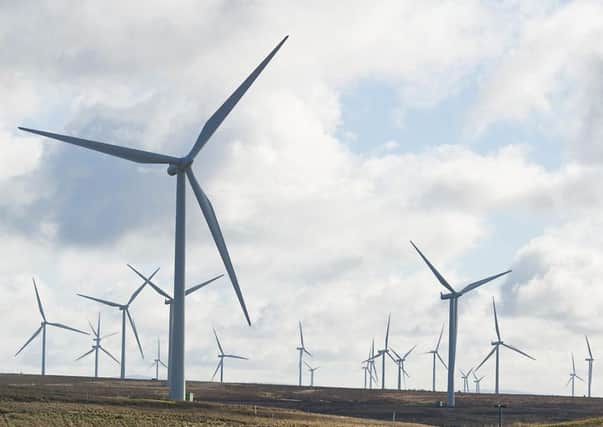Renewable energy drive means power cuts are unacceptable – Jamie Stewart


Power cuts occupy a certain part of our collective national memory – filed along with Ted Heath, Evel Knievel and the Bay City Rollers.
But since the mid-1970s – when everyone knew where the candles and the board games were kept – power cuts have become rare. Some places in Scotland experience them more than others, but ask a primary school child in the Central Belt when they last experienced a power cut and you’d probably get the response, “What’s that?”
Advertisement
Hide AdAdvertisement
Hide AdHowever, managing the electricity grid 24/7/365 without any ‘outage incidents’ is no mean feat, and while the numbers of power cuts have decreased, the role of preventing them is changing as our energy structures evolve.
The UK and Scottish governments have both committed to meet tough ‘net zero’ emission targets, and changing the way we generate power is an essential part of meeting those targets.
This change has been most drastic in Scotland where in recent years we have shut down our last two coal-burning power stations at Longannet and Cockenzie and have switched instead to impressive levels of renewable generation.
Moving to greener energy is good, right? Well yes, definitely. It’s not just essential for our environment, it also provides significant benefits to consumers and in many ways makes our electricity grid more secure.
However it does also bring with it new challenges, and policy-makers need to take these into account too.
National Grid, which manages Britain’s electricity transmission grid, has stated that wind variability was not responsible for the recent power cut that affected swathes of England for up to 90 minutes.
While this is true, they won’t deny that their role is becoming ever more complex as more and more separate generators connect to the grid. What the power cut did expose was how people’s everyday lives are becoming more and more reliant on electricity.
Advertisement
Hide AdAdvertisement
Hide AdAs electricity generation becomes lower carbon, we are using it to reduce emissions from critical services such as rail travel – think of the recently upgraded Edinburgh to Glasgow lines – and road transport with the introduction of hybrid or all-electric buses and cars.
While this is a great option for de-carbonising, it does increase our dependence on the power system.
As the people who were trapped on trains in the dark last week will testify, being power-less is not pleasant. Beyond affecting the way we travel, this reliance is even stronger for those who rely on electricity for essential things like powering personal medical equipment or heating their home in winter.
So while last month’s power cut has been classed as an extremely rare event, the likes of which hadn’t been seen since 2008, the public reaction has shown how a loss of power at such a scale is unacceptable to today’s society. In the 1970s we grumbled, lit our candles and made our own entertainment. Those days have gone and now people want answers.
The coming weeks will likely see the finger of blame being pointed in a number of directions. What is important is that the blame game is quickly replaced with co-ordinated action to ensure that the power system meets the reliability levels that today’s society needs and expects.
Dr Jamie Stewart is head of energy policy at Citizens Advice Scotland